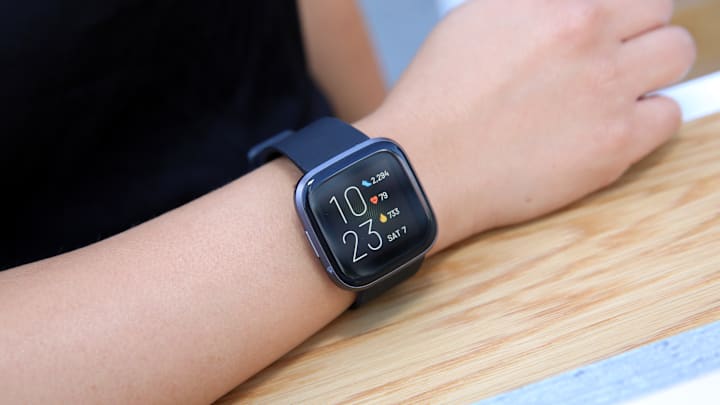Millions of people strap smartwatches—like the Apple Watch or Fitbit—to their wrists for their health benefits. Users can monitor their heart rate, count their steps, and gauge their activities. But according to some new research, these devices can also, and somewhat ironically, be teeming with disgusting bacteria.
As The Messenger reports, a paper published in Advances in Infectious Diseases found that roughly 95 percent of 20 wearables tested at random harbored some level of grime, from the skin-loving Staphylococcus (found on 85 percent) to the diarrhea-inducing Escherichia coli (60 percent). And let’s not ignore the impressive Pseudomonas (30 percent), which is good for a hearty lung infection.
A person’s habits may influence what kind of smartwatch bacteria they invite. Subjects who were frequent gym-goers tended to have the highest staph counts; people who handled animals had more E. coli.
Wearables that were made of rubber or plastic also had more germs as opposed to bands made of metal. Because the former are porous, they make for better breeding grounds. Bands made of gold or silver had practically no contamination.
But are these germs enough to actually make you ill? In a relatively healthy individual, perhaps not. But there’s still cause for concern. “Even at relatively low numbers these pathogens are of public health significance,” the study’s senior author Dr. Nwadiuto Esiobu, a professor in the department of biological sciences at Florida Atlantic University, said in a press release. “Importantly, the ability of many of these bacteria to significantly affect the health of immunocompromised hosts indicates a special need for health care workers and others in hospital environments to regularly sanitize these surfaces.”
The best way to combat smartwatch pathogens, unsurprisingly, is to regularly clean it. You’ll want to research the specific instructions for the best way to clean your individual wearable, but many experts recommend Lysol, Clorox, and/or alcohol wipes. Esiobu also recommends that other wearables, like earbuds, be studied for similar contamination.
